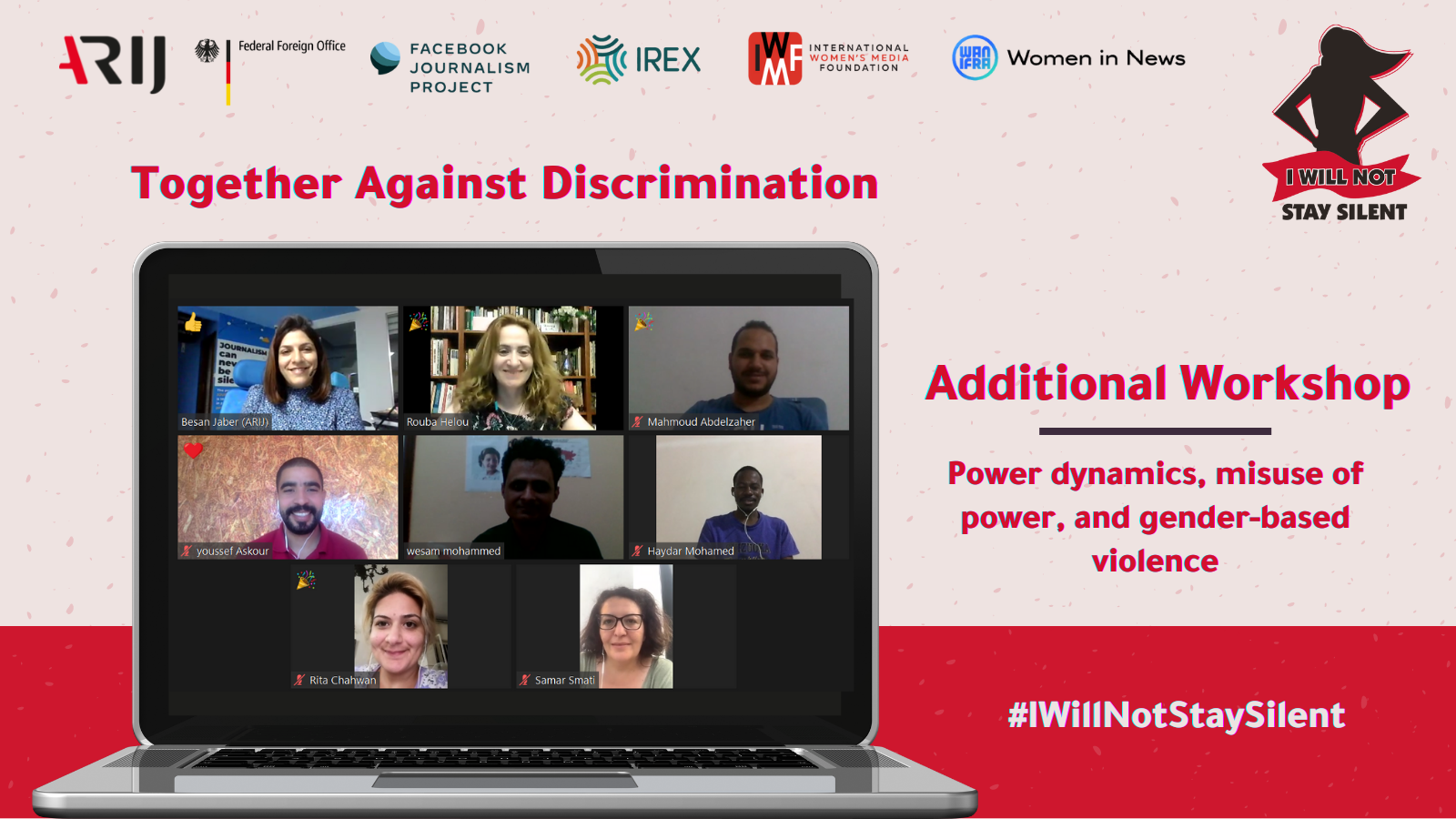Amman- 28 September 2021
The second additional workshop of the online “Together Against Discrimination” (TAD) diploma course discussed the process of gender mainstreaming. The session focused on concepts such as gender roles and gender-based violence as well as various forms of harassment.
This workshop wrapped up the four month TAD training course under the “I Will Not Stay Silent” project. It was launched by ARIJ in partnership with the Facebook Journalism Project, Women in News / WAN-IFRA, the International Women’s Media Foundation (IWMF), and SAFE, IREX, and supported by Germany’s Federal Foreign Office and aimed at creating a safe, pluralistic, and diverse media working environment that is free of discrimination.
On September 21, 2021, this final workshop was delivered by the project’s gender consultant, Dr. Rouba El Helou, and moderated by the project manager, Besan Jaber.
Dr. El Helou started with an introduction to the most siginifinat international agreements and UN resolutions for women’s rights, including the Convention on the Elimination of All Forms of Discrimination Against Women (CEDAW) and UN Resolution No. 1325 on Women, Peace and Security. She explained how these agreements oblige governments to be responsible to protect women and children.
Dr. El Helou further elaborated on these agreements as a form of gender mainstreaming on a governmental and international level. Using these examples she stressed that gender mainstreaming is a global strategy and a long term process called for by the United Nations to promote gender equality and social justice.
The workshop included a discussion in which the trainees shared experiences of gender-based violence, such as sexism and discimination which impacts their everyday lives. The trainees also discussed differences between adopting a humanitarian approach to gender equality and identifying with the feminist approch to advocate for women’s rights.
During the session, Besan Jaber explained that the diploma training program was structured on a gender mainstreaming approach in which the advocacy and promotion of gender sensitivity, diversity and inclusion are the core. This approach, she noted, includes the best practices in which institutions can adopt policies for designing programs, activities, and their implementation with a gender lens.
Jaber added that applying a gender lens has practical implications when applied to the humanities and social studies and sciences. Investigations and stories is one of many examples where research and analysis based on gender takes power dynamics, language, and behaviors into consideration.
The workshop highlighted examples from different cultures in the MENA and how music, arts and language can explain gender roles and dynamics.
“Together Against Discrimination – TAD” focuses on equipping participants with theoretical and practical hands-on knowledge to design and implement effective internal complaints mechanisms against various forms of misuse of authority in media institutions and general media working environments, such as fraud, corruption, harassment and hate speech, to permit stakeholders to best receive, respond, investigate and report any form of alleged complaints.








